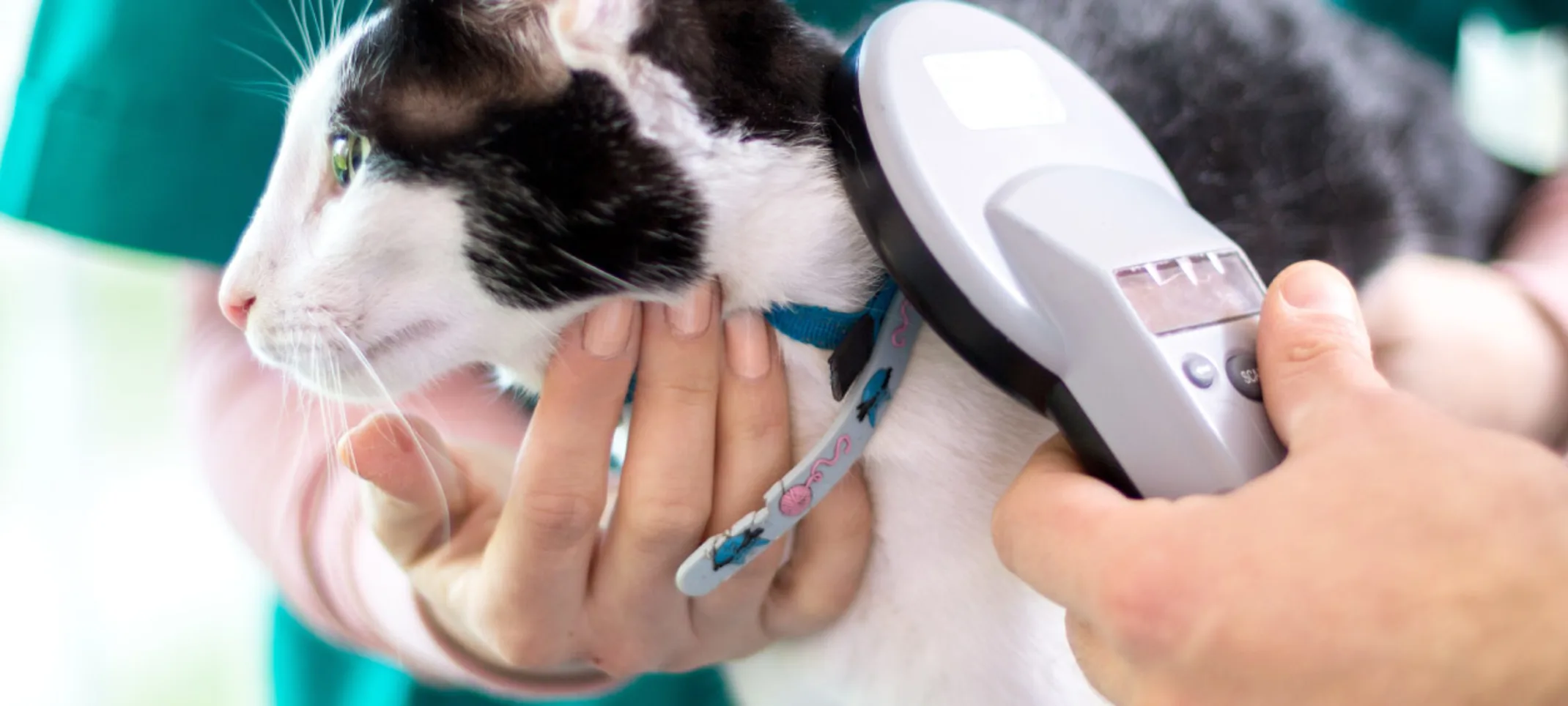Memorial Cat Hospital in Houston Texas
Microchipping
Thousands of cats become lost every day, and microchip identification is the one reliable way to reunite these lost cats with their owners.

Overview
The procedure is safe, easy, inexpensive, and practically painless. The microchip itself is about the size of a grain of rice. It contains a tiny metallic "bar code" surrounded by an inert membrane which makes it non-reactive when it is placed under the skin. The microchip is injected under the skin between the shoulder blades with a hypodermic-type syringe. Although the needle itself is larger than those used for vaccinations, most cats don't seem to notice any more than any other injection. Once the chip is in place, it should be there for the life of the cat, and we will register your microchip to ensure your contact information is associated with the bar code number.
How It Works
If the cat becomes lost, all animal care facilities (shelters, veterinary hospitals, pounds, etc.) will scan the cat for a microchip, using a special microchip reader that is simply waved over the skin. These scanners are very reliable and easy to use. Once a microchip is found, a special hotline is called, and the lost cat is reported. The cat owner is then called immediately and given the contact information about where to pick up their cat.
Regardless of the type of chip, every cat should have microchip ID. Some owners feel that their cat doesn't need identification because it is always in the house, but in our experience these are the most likely cats to become lost when they get outside by accident. As separation from your cat can happen all too easily, appropriate identification, ideally permanent identification by use of microchip, is critical. Industry figures claim that 8,000 cats every day are located and returned home because they have a microchip; your cat should be protected!
Looking for your cat? Click here to access the Universal Pet Microchip Lookup: www.petmicrochiplookup.org
